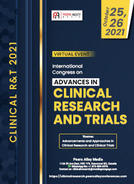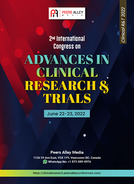BioS-BioL 2023 is an important event that plays a crucial role in advancing the development and understanding of biosimilars, and improving patient access to life-saving therapies. It provides a platform for researchers, scientists, industry professionals, policymakers, and other stakeholders to share their knowledge and insights on biosimilars. Biosimilars are biologic drugs that are highly similar to existing biologic drugs and are designed to be just as safe and effective as the original product.
Moreover, this conference helps to facilitate partnerships and collaborations between academia, industry, and regulatory agencies, which are essential for the development and approval of biosimilars. The conference also provides an opportunity for attendees to network, learn from each other, and gain insights into the challenges and opportunities in the biosimilars industry.
------------------------------------------------------------------------------
Biosimilars Proceedings
Dear Distinguished Guests, Speakers, and Delegates,
It is my great pleasure to welcome you all to the 4th Euro-Global Summit on Future of Biologics and Biosimilars. This summit provides an excellent opportunity for experts and professionals from around the world to come together and exchange knowledge, ideas, and best practices on the latest developments in the field of biologics and biosimilars.
As we gather here today, we are witnessing an unprecedented growth and innovation in the biotech industry, with new therapies and treatments emerging to address some of the most pressing health challenges of our time. Biologics and biosimilars have emerged as a key part of this landscape, offering new options for patients and healthcare providers alike. Over the course of the summit, we will hear from leading pioneers in the field of biologics and biosimilars, who will share their insights and perspectives on the latest scientific breakthroughs, regulatory developments, and business trends.
Five possible major objectives that the summit aims to achieve:
I wish you all a productive and enjoyable summit, and look forward to hearing about the new insights and ideas that will emerge from our discussions.
------------------------
With best regards,
BioL-BioS 2023
Organizing Committee
Peers Alley Media, Canada

NYU Grossman Long Island School of Medicine, USA

ORBee Consulting, USA

Cytiva, USA

University of Padua, Italy
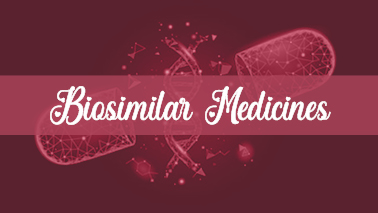
Tags
Peers Alley Media Scientists Opinion
Generic Drug Conferences
Intellectual Property Rights Conferences
Generic Drug Conferences 2023
Biologics Conferences 2023 Europe
Precision Medicine Conferences
Biosimilar Conferences 2023 Europe
Biologics Conferences 2023 Asia
Rare Disease Conferences
Legitimate Scientific Conference Organizer
Biosimilar Medicine Conferences
Biosimilar Conferences 2023 USA
Peers Alley Media Conferences Feedback
Biosimilar Conferences
Biosimilars and Biologics Conferences
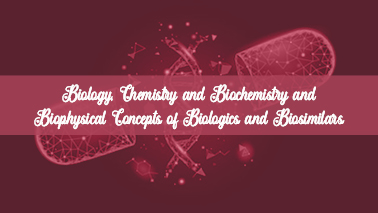
Tags
Biosimilar Conferences 2023
Peers Alley Media Scholars Opinion
Rare Disease Conferences
Biosimilar Conferences 2023 Asia
Biosimilar Conferences
Biosimilars and Biologics Conferences
Precision Medicine Conferences
Peers Alley Media Conferences Feedback
Biosimilar Conferences 2023 Europe
Intellectual Property Rights Conferences
Generic Drug Conferences
Pharmacokinetics and Pharmacodynamics of Biologics Conferences
Biologics Conferences 2023 Asia
Peers Alley Conferences Reviews
Legitimate Scientific Conferences

Tags
Biosimilars and Biologics Conferences
Biologics Conferences 2023 Asia
Legitimate Scientific Conferences of Peers Alley Media
Biologics Conferences 2023
Precision Medicine Conferences
Pharmacokinetics and Pharmacodynamics of Biologics Conferences
Legitimate Scientific Conferences
Peers Alley Media Scholars Opinion
Rare Disease Conferences
Peers Alley Media Conferences Feedback
Intellectual Property Rights Conferences
Biologics Conferences 2023 Europe
Biosimilar Conferences 2023 Europe
Biosimilar Conferences 2023 USA
Medical Devices and Diagnostics Conferences
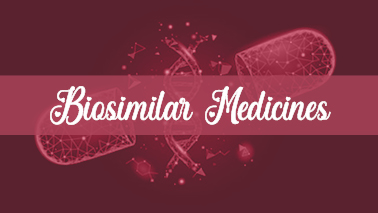
Tags
Medical Devices and Diagnostics Conferences
Peers Alley Media Scientists Opinion
Legislative and Regulatory Pathways for Biosimilars Conferences
Biologics Conferences 2023
Pharmacokinetics and Pharmacodynamics of Biologics Conferences
Peers Alley Media Conferences Feedback
Generic Drug Conferences 2023
Biologics Conferences 2023 Europe
Biosimilar Conferences 2023 USA
Peers Alley Media Scholars Opinion
Biologics Conferences 2023 Asia
Biosimilar Conferences
Peers Alley Conferences Reviews
Legitimate Scientific Conferences of Peers Alley Media
Biosimilar Conferences 2023

Tags
Precision Medicine Conferences
Biologics Conferences 2023 Asia
Legitimate Scientific Conferences of Peers Alley Media
Peers Alley Media Conferences Feedback
Biosimilar Conferences 2023 Asia
Legitimate Scientific Conference Organizer
Biosimilar Conferences 2023
Legislative and Regulatory Pathways for Biosimilars Conferences
Generic Drug Conferences
Biologics Conferences 2023 Europe
Biologics Conferences 2023
Biosimilar Medicine Conferences
Biosimilar Conferences
Pharmacokinetics and Pharmacodynamics of Biologics Conferences
Intellectual Property Rights Conferences
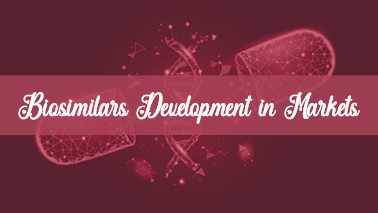
Tags
Biologics Conferences 2023
Legitimate Scientific Conferences
Legitimate Scientific Conference Organizer
Pharmacokinetics and Pharmacodynamics of Biologics Conferences
Legitimate Scientific Conferences of Peers Alley Media
Intellectual Property Rights Conferences
Peers Alley Media Conferences Feedback
Biosimilar Conferences 2023
Generic Drug Conferences 2023
Peers Alley Media Scientists Opinion
Peers Alley Conferences Reviews
Generic Drug Conferences
Peers Alley Media Scholars Opinion
Biosimilar Conferences 2023 Europe
Biosimilar Conferences 2023 Asia
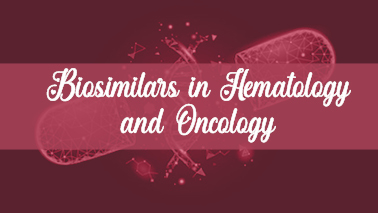
Tags
Intellectual Property Rights Conferences
Precision Medicine Conferences
Rare Disease Conferences
Legislative and Regulatory Pathways for Biosimilars Conferences
Pharmacokinetics and Pharmacodynamics of Biologics Conferences
Generic Drug Conferences 2023
Generic Drug Conferences
Peers Alley Media Scholars Opinion
Biosimilar Conferences 2023 USA
Medical Devices and Diagnostics Conferences
Biosimilar Conferences
Peers Alley Media Conferences Feedback
Legitimate Scientific Conferences of Peers Alley Media
Biosimilar Conferences 2023 Asia
Biosimilar Conferences 2023 Europe
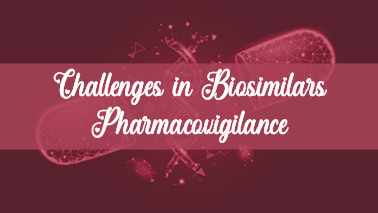
Tags
Legislative and Regulatory Pathways for Biosimilars Conferences
Biosimilar Conferences 2023 Asia
Biologics Conferences 2023 Europe
Pharmacokinetics and Pharmacodynamics of Biologics Conferences
Biosimilar Conferences 2023
Biosimilar Conferences 2023 Europe
Rare Disease Conferences
Biosimilars and Biologics Conferences
Biosimilar Medicine Conferences
Peers Alley Media Conferences Feedback
Legitimate Scientific Conference Organizer
Biologics Conferences 2023 Asia
Medical Devices and Diagnostics Conferences
Generic Drug Conferences 2023
Biosimilar Conferences
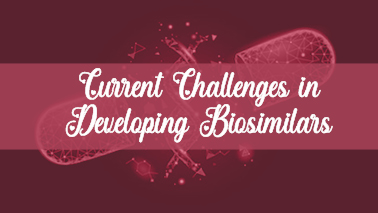
Tags
Pharmacokinetics and Pharmacodynamics of Biologics Conferences
Peers Alley Media Scientists Opinion
Biosimilars and Biologics Conferences
Biosimilar Conferences 2023
Peers Alley Media Conferences Feedback
Rare Disease Conferences
Peers Alley Media Scholars Opinion
Biosimilar Conferences 2023 Europe
Biosimilar Medicine Conferences
Legitimate Scientific Conferences
Biosimilar Conferences 2023 Asia
Biologics Conferences 2023 Asia
Biologics Conferences 2023 Europe
Biosimilar Conferences
Peers Alley Conferences Reviews

Tags
Rare Disease Conferences
Generic Drug Conferences 2023
Biosimilar Conferences 2023 USA
Peers Alley Media Conferences Feedback
Biologics Conferences 2023
Biosimilar Conferences 2023
Legitimate Scientific Conferences of Peers Alley Media
Biosimilars and Biologics Conferences
Pharmacokinetics and Pharmacodynamics of Biologics Conferences
Biologics Conferences 2023 Asia
Legitimate Scientific Conferences
Biosimilar Conferences 2023 Asia
Biosimilar Conferences
Biosimilar Conferences 2023 Europe
Intellectual Property Rights Conferences
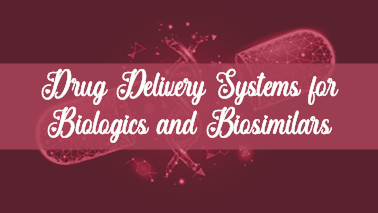
Tags
Legitimate Scientific Conference Organizer
Generic Drug Conferences
Peers Alley Media Scholars Opinion
Peers Alley Media Conferences Feedback
Legislative and Regulatory Pathways for Biosimilars Conferences
Biosimilar Conferences 2023 Europe
Intellectual Property Rights Conferences
Rare Disease Conferences
Biosimilar Conferences 2023 USA
Generic Drug Conferences 2023
Biosimilar Conferences 2023
Legitimate Scientific Conferences of Peers Alley Media
Medical Devices and Diagnostics Conferences
Peers Alley Conferences Reviews
Biologics Conferences 2023
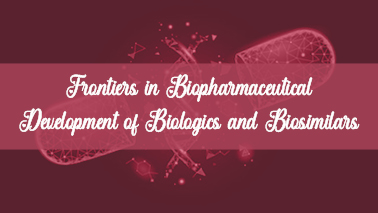
Tags
Biosimilar Conferences 2023 Asia
Biosimilars and Biologics Conferences
Rare Disease Conferences
Biologics Conferences 2023 Asia
Pharmacokinetics and Pharmacodynamics of Biologics Conferences
Peers Alley Media Conferences Feedback
Legitimate Scientific Conference Organizer
Medical Devices and Diagnostics Conferences
Generic Drug Conferences
Legislative and Regulatory Pathways for Biosimilars Conferences
Biosimilar Conferences
Biosimilar Conferences 2023 USA
Legitimate Scientific Conferences
Precision Medicine Conferences
Biosimilar Conferences 2023
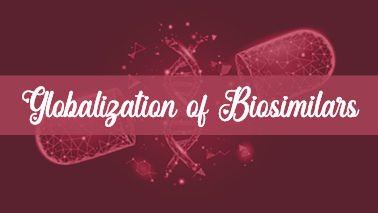
Tags
Intellectual Property Rights Conferences
Peers Alley Media Scientists Opinion
Biosimilar Conferences 2023 Europe
Biosimilar Medicine Conferences
Legitimate Scientific Conferences
Biologics Conferences 2023 Europe
Peers Alley Media Scholars Opinion
Rare Disease Conferences
Precision Medicine Conferences
Legitimate Scientific Conference Organizer
Biosimilar Conferences 2023
Biosimilar Conferences 2023 Asia
Biosimilar Conferences
Peers Alley Media Conferences Feedback
Legitimate Scientific Conferences of Peers Alley Media
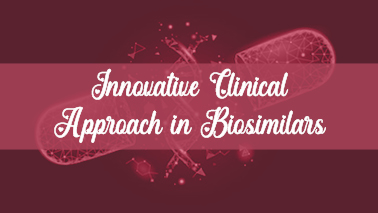
Tags
Biosimilars and Biologics Conferences
Generic Drug Conferences
Pharmacokinetics and Pharmacodynamics of Biologics Conferences
Peers Alley Media Scientists Opinion
Biosimilar Conferences 2023
Peers Alley Conferences Reviews
Precision Medicine Conferences
Peers Alley Media Conferences Feedback
Biosimilar Conferences
Rare Disease Conferences
Biosimilar Conferences 2023 USA
Intellectual Property Rights Conferences
Legitimate Scientific Conferences of Peers Alley Media
Legislative and Regulatory Pathways for Biosimilars Conferences
Biologics Conferences 2023 Asia
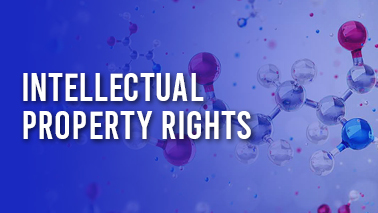
Tags
Legitimate Scientific Conferences of Peers Alley Media
Biosimilar Conferences 2023 USA
Pharmacokinetics and Pharmacodynamics of Biologics Conferences
Biosimilar Conferences 2023
Biologics Conferences 2023
Generic Drug Conferences 2023
Rare Disease Conferences
Legitimate Scientific Conference Organizer
Medical Devices and Diagnostics Conferences
Legislative and Regulatory Pathways for Biosimilars Conferences
Intellectual Property Rights Conferences
Biosimilars and Biologics Conferences
Peers Alley Media Scholars Opinion
Biologics Conferences 2023 Europe
Biosimilar Conferences 2023 Asia

Tags
Generic Drug Conferences 2023
Legitimate Scientific Conferences of Peers Alley Media
Peers Alley Media Conferences Feedback
Peers Alley Media Scholars Opinion
Pharmacokinetics and Pharmacodynamics of Biologics Conferences
Biologics Conferences 2023 Asia
Peers Alley Media Scientists Opinion
Legislative and Regulatory Pathways for Biosimilars Conferences
Biosimilar Medicine Conferences
Biosimilar Conferences
Biosimilar Conferences 2023
Biologics Conferences 2023
Peers Alley Conferences Reviews
Intellectual Property Rights Conferences
Legitimate Scientific Conference Organizer
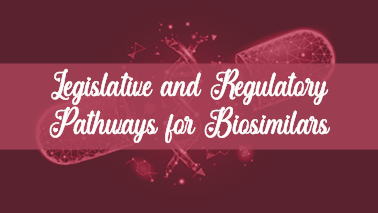
Tags
Biologics Conferences 2023 Asia
Peers Alley Media Scientists Opinion
Biosimilar Conferences 2023 Asia
Generic Drug Conferences
Pharmacokinetics and Pharmacodynamics of Biologics Conferences
Peers Alley Conferences Reviews
Biosimilar Conferences 2023
Intellectual Property Rights Conferences
Generic Drug Conferences 2023
Legitimate Scientific Conferences of Peers Alley Media
Peers Alley Media Scholars Opinion
Peers Alley Media Conferences Feedback
Legislative and Regulatory Pathways for Biosimilars Conferences
Medical Devices and Diagnostics Conferences
Rare Disease Conferences
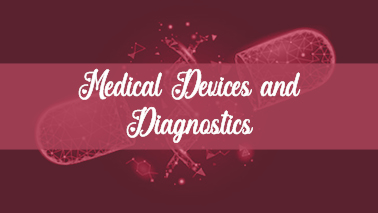
Tags
Legitimate Scientific Conferences of Peers Alley Media
Medical Devices and Diagnostics Conferences
Biologics Conferences 2023 Asia
Biologics Conferences 2023 Europe
Legitimate Scientific Conference Organizer
Peers Alley Media Scientists Opinion
Peers Alley Conferences Reviews
Rare Disease Conferences
Intellectual Property Rights Conferences
Biosimilar Conferences
Pharmacokinetics and Pharmacodynamics of Biologics Conferences
Legitimate Scientific Conferences
Generic Drug Conferences 2023
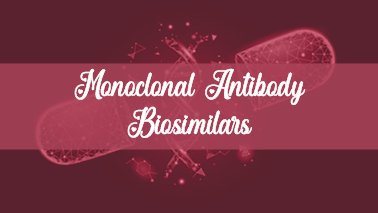
Tags
Biosimilar Conferences 2023 USA
Rare Disease Conferences
Peers Alley Media Scholars Opinion
Biologics Conferences 2023 Asia
Biologics Conferences 2023
Precision Medicine Conferences
Generic Drug Conferences
Peers Alley Media Scientists Opinion
Peers Alley Media Conferences Feedback
Biosimilar Conferences 2023 Europe
Legitimate Scientific Conference Organizer
Peers Alley Conferences Reviews
Legitimate Scientific Conferences of Peers Alley Media
Biosimilar Medicine Conferences
Legitimate Scientific Conferences
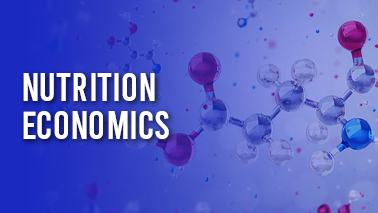
Tags
Biosimilar Conferences 2023
Precision Medicine Conferences
Intellectual Property Rights Conferences
Peers Alley Media Conferences Feedback
Legitimate Scientific Conferences
Generic Drug Conferences
Peers Alley Media Scientists Opinion
Medical Devices and Diagnostics Conferences
Biologics Conferences 2023
Biosimilar Conferences 2023 Asia
Rare Disease Conferences
Biosimilar Conferences
Peers Alley Media Scholars Opinion
Legitimate Scientific Conferences of Peers Alley Media
Peers Alley Conferences Reviews
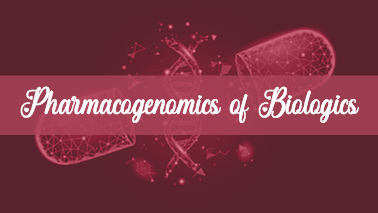
Tags
Medical Devices and Diagnostics Conferences
Biosimilar Conferences
Rare Disease Conferences
Peers Alley Media Scientists Opinion
Pharmacokinetics and Pharmacodynamics of Biologics Conferences
Precision Medicine Conferences
Legitimate Scientific Conferences
Biosimilars and Biologics Conferences
Peers Alley Media Scholars Opinion
Generic Drug Conferences 2023
Biosimilar Conferences 2023 USA
Legitimate Scientific Conference Organizer
Biologics Conferences 2023 Europe
Peers Alley Conferences Reviews

Tags
Precision Medicine Conferences
Pharmacokinetics and Pharmacodynamics of Biologics Conferences
Medical Devices and Diagnostics Conferences
Biologics Conferences 2023 Asia
Legitimate Scientific Conferences
Biologics Conferences 2023
Biosimilar Medicine Conferences
Legitimate Scientific Conferences of Peers Alley Media
Generic Drug Conferences
Intellectual Property Rights Conferences
Legislative and Regulatory Pathways for Biosimilars Conferences
Biosimilar Conferences 2023 Asia
Biosimilar Conferences
Rare Disease Conferences
Biosimilar Conferences 2023 USA

Tags
Legitimate Scientific Conferences of Peers Alley Media
Biosimilar Conferences 2023 Europe
Biosimilar Conferences 2023
Biosimilar Conferences 2023 Asia
Generic Drug Conferences 2023
Biosimilar Conferences
Biosimilar Conferences 2023 USA
Legitimate Scientific Conferences
Generic Drug Conferences
Biologics Conferences 2023 Asia
Peers Alley Media Scholars Opinion
Biologics Conferences 2023
Peers Alley Media Scientists Opinion
Peers Alley Conferences Reviews
Pharmacokinetics and Pharmacodynamics of Biologics Conferences

Tags
Precision Medicine Conferences
Legislative and Regulatory Pathways for Biosimilars Conferences
Peers Alley Media Scholars Opinion
Biosimilars and Biologics Conferences
Medical Devices and Diagnostics Conferences
Peers Alley Media Conferences Feedback
Biosimilar Conferences 2023 Europe
Peers Alley Media Scientists Opinion
Biosimilar Conferences
Legitimate Scientific Conference Organizer
Rare Disease Conferences
Biosimilar Medicine Conferences
Biosimilar Conferences 2023 USA
Intellectual Property Rights Conferences
Legitimate Scientific Conferences of Peers Alley Media
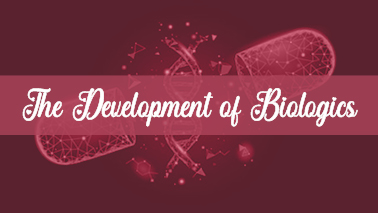
Tags
Generic Drug Conferences 2023
Biologics Conferences 2023 Asia
Precision Medicine Conferences
Biosimilar Conferences 2023 Asia
Biosimilar Conferences 2023 USA
Intellectual Property Rights Conferences
Biologics Conferences 2023
Generic Drug Conferences
Peers Alley Conferences Reviews
Legitimate Scientific Conferences
Legitimate Scientific Conference Organizer
Pharmacokinetics and Pharmacodynamics of Biologics Conferences
Biosimilar Conferences 2023 Europe
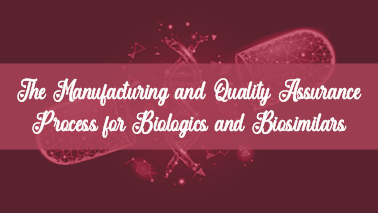
Tags
Peers Alley Conferences Reviews
Peers Alley Media Scholars Opinion
Biosimilar Conferences 2023
Biosimilars and Biologics Conferences
Generic Drug Conferences 2023
Peers Alley Media Scientists Opinion
Biosimilar Conferences
Biosimilar Medicine Conferences
Biosimilar Conferences 2023 USA
Legislative and Regulatory Pathways for Biosimilars Conferences
Biosimilar Conferences 2023 Asia
Medical Devices and Diagnostics Conferences
Peers Alley Media Conferences Feedback
Biosimilar Conferences 2023 Europe
Legitimate Scientific Conference Organizer
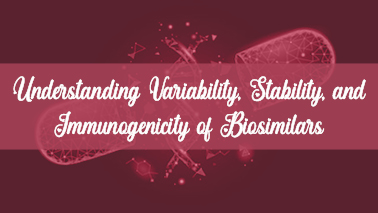
Tags
Pharmacokinetics and Pharmacodynamics of Biologics Conferences
Peers Alley Media Scholars Opinion
Peers Alley Media Scientists Opinion
Biosimilar Conferences 2023 USA
Generic Drug Conferences 2023
Legitimate Scientific Conferences
Peers Alley Conferences Reviews
Biosimilars and Biologics Conferences
Biologics Conferences 2023 Asia
Precision Medicine Conferences
Biologics Conferences 2023 Europe
Biosimilar Conferences 2023 Europe
Intellectual Property Rights Conferences
Biologics Conferences 2023
Rare Disease Conferences
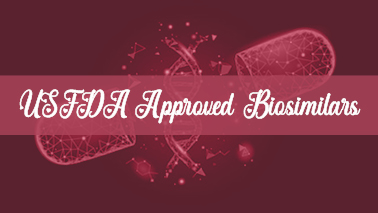
Tags
Legitimate Scientific Conference Organizer
Peers Alley Conferences Reviews
Biosimilar Medicine Conferences
Intellectual Property Rights Conferences
Biologics Conferences 2023 Europe
Biosimilar Conferences
Precision Medicine Conferences
Generic Drug Conferences 2023
Peers Alley Media Conferences Feedback
Pharmacokinetics and Pharmacodynamics of Biologics Conferences
Generic Drug Conferences
Legitimate Scientific Conferences
Biologics Conferences 2023 Asia
Biologics Conferences 2023
Biosimilar Conferences 2023 USA

Tags
Generic Drug Conferences 2023
Biologics Conferences 2023 Asia
Legitimate Scientific Conferences of Peers Alley Media
Intellectual Property Rights Conferences
Pharmacokinetics and Pharmacodynamics of Biologics Conferences
Peers Alley Media Scholars Opinion
Biosimilar Conferences
Biologics Conferences 2023 Europe
Peers Alley Conferences Reviews
Generic Drug Conferences
Biosimilar Conferences 2023 Europe
Medical Devices and Diagnostics Conferences
Precision Medicine Conferences
Peers Alley Media Conferences Feedback
Biosimilar Conferences 2023 Asia
Market Value of Biosimilars in USA:
Biosimilars are biological products that are highly similar to and have no clinically meaningful differences from an FDA-approved reference product. These products are becoming increasingly important in the healthcare industry as they provide an alternative to expensive brand-name biologic drugs. The market for biosimilars in the United States is expected to grow significantly in the coming years.
According to a report by Grand View Research, the biosimilars market in the United States was valued at $5.3 billion in 2020 and is expected to grow at a compound annual growth rate (CAGR) of 31.4% from 2021 to 2028. The increasing prevalence of chronic diseases, such as cancer, autoimmune diseases, and diabetes, is driving the demand for biosimilars in the United States.
The report also indicates that the introduction of biosimilars has led to cost savings for patients and the healthcare system. Biosimilars typically cost 20% to 30% less than their brand-name counterparts, making them more affordable for patients and reducing healthcare costs.
Several biosimilar drugs have been approved by the FDA in recent years, including biosimilars for drugs like Humira, Enbrel, and Remicade. These drugs have already started to gain traction in the market, and their use is expected to continue to grow.
However, there are still some challenges facing the biosimilar market in the United States. For example, there is still some reluctance among physicians to prescribe biosimilars, and there is also a lack of education and awareness among patients about these products. Additionally, the patent protection for some biologic drugs limits the entry of biosimilars into the market.
Overall, the biosimilar market in the United States is expected to continue to grow, driven by increasing demand for cost-effective treatments for chronic diseases.
Market Value of Biologics in USA:
Biologics are complex medicines made from living cells or organisms that are used to treat a wide range of diseases, including cancer, autoimmune disorders, and rare genetic conditions. The market value of biologics in the United States has been steadily increasing over the past few years.
According to a report by EvaluatePharma, the market for biologics in the United States was valued at $325 billion in 2020, accounting for more than 40% of the global biologics market. The report also predicts that the market for biologics in the United States will continue to grow at a compound annual growth rate (CAGR) of 7.4% through 2026, reaching a total value of $489 billion.
The growth of the biologics market is being driven by several factors, including the increasing prevalence of chronic diseases, the development of new and innovative biologic drugs, and the expansion of biosimilar drugs.
In recent years, there has been a significant increase in the number of FDA approvals for biologic drugs, particularly in the areas of oncology and immunology. These drugs are often very expensive, with some costing hundreds of thousands of dollars per patient per year. However, they also offer significant benefits for patients, such as improved survival rates and better quality of life.
The biologics market in the United States is highly competitive, with many companies vying for market share. Some of the top players in the market include Roche, Johnson & Johnson, Amgen, and AbbVie.
Overall, the market value of biologics in the United States is expected to continue to grow in the coming years, driven by the increasing demand for innovative treatments for chronic diseases and the development of new biologic drugs.
Market Value of Biosimilars in Europe:
The market value of biosimilars in Europe has been growing steadily in recent years, driven by the increasing demand for more cost-effective treatments for chronic diseases such as cancer, autoimmune disorders, and diabetes.
According to a report by IQVIA, the biosimilars market in Europe was valued at €2.7 billion in 2020, representing a 27% increase from the previous year. The report also predicts that the market for biosimilars in Europe will continue to grow at a compound annual growth rate (CAGR) of 25% through 2025, reaching a total value of €7.5 billion.
The growth of the biosimilars market in Europe has been facilitated by supportive policies and regulatory frameworks. The European Medicines Agency (EMA) has been at the forefront of promoting the development and approval of biosimilars, with a well-established regulatory pathway for the approval of these products. This has led to an increasing number of biosimilar approvals in recent years, with biosimilars now available for a range of reference products such as Humira, Remicade, and Herceptin.
The introduction of biosimilars has also led to cost savings for patients and healthcare systems. Biosimilars typically cost 20% to 30% less than their brand-name counterparts, making them more affordable for patients and reducing healthcare costs.
The biosimilars market in Europe is highly competitive, with many companies vying for market share. Some of the top players in the market include Pfizer, Novartis, Samsung Bioepis, and Sandoz.
Overall, the biosimilars market in Europe is expected to continue to grow in the coming years, driven by the increasing demand for cost-effective treatments and the expansion of biosimilar drugs into new therapeutic areas.
Market Value of Biologics in Europe
The market value of biologics in Europe has been steadily increasing over the past few years, driven by the growing prevalence of chronic diseases and the development of innovative biologic drugs to treat them.
According to a report by IQVIA, the biologics market in Europe was valued at €54 billion in 2020, representing a 5% increase from the previous year. The report also predicts that the market for biologics in Europe will continue to grow at a compound annual growth rate (CAGR) of 4% through 2025, reaching a total value of €65 billion.
The biologics market in Europe is highly competitive, with many companies vying for market share. Some of the top players in the market include Roche, AbbVie, Johnson & Johnson, and Novartis.
The growth of the biologics market in Europe is being driven by several factors, including the increasing prevalence of chronic diseases such as cancer and autoimmune disorders, the development of new and innovative biologic drugs, and the expansion of biosimilar drugs.
Biosimilar drugs are becoming increasingly important in the European biologics market as they offer a more cost-effective alternative to expensive brand-name biologic drugs. The introduction of biosimilars has led to cost savings for patients and healthcare systems, as they typically cost 20% to 30% less than their brand-name counterparts.
Overall, the market value of biologics in Europe is expected to continue to grow in the coming years, driven by the increasing demand for innovative treatments for chronic diseases and the expansion of biosimilar drugs. However, the market may face some challenges such as the increasing pressure from regulatory authorities to reduce drug prices and the potential for competition from emerging markets.
Market Value of Biosimilars in Asia
The market value of biosimilars in Asia is also growing rapidly. According to a report by Allied Market Research, the Asia-Pacific biosimilars market size was valued at USD 2.2 billion in 2020 and is expected to reach USD 13.2 billion by 2028, growing at a CAGR of 25.6% from 2021 to 2028.
The key drivers of the biosimilars market in Asia include the increasing prevalence of chronic diseases, rising demand for cost-effective treatment options, and the need to address the growing burden of healthcare costs. In addition, favorable government regulations and policies, such as the establishment of regulatory pathways for biosimilars, are also contributing to market growth.
Japan, South Korea, and India are the largest markets for biosimilars in the region, with significant investments being made by companies such as Samsung Bioepis, Celltrion, and Biocon in these markets. In addition, the emergence of new players, such as Chinese biotech firms, is expected to further boost the growth of the biosimilars market in Asia.
Overall, the biosimilars market in Asia is expected to continue its growth trajectory, driven by factors such as increasing healthcare expenditure, growing demand for affordable and effective biologics, and the need to address the unmet medical needs of patients.
Market Value of Biologics in Asia
The market value of biologics in Asia has been growing rapidly in recent years. According to a report by Grand View Research, the Asia Pacific biologics market size was valued at USD 55.6 billion in 2020 and is expected to grow at a compound annual growth rate (CAGR) of 7.6% from 2021 to 2028.
Factors contributing to this growth include increasing investment in research and development of biologics, a large patient population with chronic diseases, increasing adoption of biologics as a preferred treatment option, and favorable government initiatives to support the biopharmaceutical industry.
Some of the major players operating in the biologics market in Asia include Amgen Inc., Roche Holding AG, AbbVie Inc., Sanofi, and Novo Nordisk A/S. Japan, China, and South Korea are the largest markets for biologics in the region, while India and Southeast Asian countries are expected to witness significant growth in the coming years.
Overall, the Asia Pacific biologics market is expected to continue its growth trajectory due to factors such as increasing healthcare expenditure, growing awareness about the benefits of biologics, and rising demand for personalized medicine.
Market Value of Biosimilars in Japan
The market value of biosimilars in Japan is one of the largest in the world. According to a report by Frost & Sullivan, the Japanese biosimilars market size was valued at USD 2.8 billion in 2020 and is expected to grow at a CAGR of 6.9% from 2021 to 2025.
Japan is one of the largest markets for biosimilars in the world due to its well-established regulatory framework for biosimilars, which has allowed for the timely launch of biosimilars and increased competition in the market. In addition, the Japanese government has implemented policies to promote the use of biosimilars as a cost-effective treatment option, which has further boosted market growth.
Some of the major players operating in the Japanese biosimilars market include Samsung Bioepis, Pfizer, Mylan, and Daiichi Sankyo. The market is dominated by biosimilars for oncology and autoimmune diseases, such as Herceptin, Remicade, and Enbrel.
Overall, the biosimilars market in Japan is expected to continue its growth trajectory, driven by factors such as an aging population, increasing prevalence of chronic diseases, and the need to reduce healthcare costs. The introduction of new biosimilars, along with the increasing adoption of biosimilars by healthcare providers, is expected to further boost market growth in the coming years.
Market Value of Biosimilars in China
As of my knowledge cutoff date of September 2021, the market value of biosimilars in China was rapidly growing and expected to continue to do so in the coming years. According to a report by ResearchAndMarkets, the biosimilars market in China was valued at approximately US$1.56 billion in 2020 and was projected to reach US$7.84 billion by 2026, with a compound annual growth rate (CAGR) of 29.3% during the forecast period (2021-2026).
The growth of the biosimilars market in China is driven by various factors such as the increasing prevalence of chronic diseases, the need for cost-effective treatments, and the government's initiatives to promote the use of biosimilars. In addition, the patent expirations of several blockbuster biologic drugs are also creating opportunities for biosimilar manufacturers in China.
It is important to note that the market value of biosimilars in China may have changed since my knowledge cutoff date, and the growth projections may have been impacted by various factors such as the ongoing COVID-19 pandemic and changes in government policies.
Market Value of Biosimilars in Canada
According to a report by Grand View Research, the biosimilars market in Canada was valued at approximately CAD 437.9 million in 2020 and was projected to reach CAD 3.3 billion by 2028, with a CAGR of 28.9% during the forecast period (2021-2028).
The growth of the biosimilars market in Canada is driven by factors such as the increasing prevalence of chronic diseases, the need for cost-effective treatments, and the government's efforts to encourage the use of biosimilars. The Canadian government has implemented various policies and initiatives to promote the use of biosimilars, including a biosimilar switching program, which aims to increase the uptake of biosimilars and reduce healthcare costs.
It is important to note that the market value of biosimilars in Canada may have changed since my knowledge cutoff date, and the growth projections may have been impacted by various factors such as the ongoing COVID-19 pandemic and changes in government policies.
Market Value of Biosimilars in Australia
According to a report by IQVIA, the biosimilars market in Australia was valued at AUD 364 million in 2020 and was projected to reach AUD 2.2 billion by 2025, with a CAGR of 43.4% during the forecast period (2020-2025).
The growth of the biosimilars market in Australia is driven by factors such as the increasing prevalence of chronic diseases, the need for cost-effective treatments, and the government's efforts to encourage the use of biosimilars. The Australian government has implemented various policies and initiatives to promote the use of biosimilars, including the Biosimilar Education Grant program, which provides funding to support education and training for healthcare professionals on biosimilars.
It is important to note that the market value of biosimilars in Australia may have changed since my knowledge cutoff date, and the growth projections may have been impacted by various factors such as the ongoing COVID-19 pandemic and changes in government policies.
Biosimilars, Biologics and Generic Drugs Societies in USA
Biosimilars Forum | Generic Pharmaceutical Association (GPhA) | Biotechnology Innovation Organization (BIO) | American Society of Clinical Oncology (ASCO) | American College of Rheumatology (ACR) | Academy of Managed Care Pharmacy (AMCP) | National Comprehensive Cancer Network (NCCN) | American Association of Clinical Endocrinologists (AACE) | National Psoriasis Foundation (NPF) | The Society for Immunotherapy of Cancer (SITC) | Generic Pharmaceutical Association (GPhA) | Association for Accessible Medicines (AAM) | American Association of Pharmaceutical Scientists (AAPS) | Pharmaceutical Research and Manufacturers of America (PhRMA) | National Community Pharmacists Association (NCPA) | Academy of Managed Care Pharmacy (AMCP) | American Pharmacists Association (APhA) | National Association of Chain Drug Stores (NACDS) | Healthcare Distribution Alliance (HDA) | United States Pharmacopeia (USP) | Biotechnology Innovation Organization (BIO) | International Society for Biological and Environmental Repositories (ISBER) | American Association of Pharmaceutical Scientists (AAPS) | American Society of Gene and Cell Therapy (ASGCT) | American Society for Biochemistry and Molecular Biology (ASBMB) | American Society of Hematology (ASH) | American Society of Clinical Oncology (ASCO) | Society for Immunotherapy of Cancer (SITC) | International Society for Stem Cell Research (ISSCR) | Federation of American Societies for Experimental Biology (FASEB) | American Association of Pharmaceutical Scientists (AAPS) | American Association of Immunologists (AAI) | American Association for Cancer Research (AACR) | American Society for Biochemistry and Molecular Biology (ASBMB) | American Society for Cell Biology (ASCB) | American Society for Clinical Pharmacology and Therapeutics (ASCPT) | American Society for Microbiology (ASM) | American Society of Gene & Cell Therapy (ASGCT) | American Society of Hematology (ASH) | Association of Biomolecular Resource Facilities (ABRF) | Association of Medical Diagnostics Manufacturers (AMDM) | Biomedical Engineering Society (BMES) | Biotechnology Innovation Organization (BIO) | Clinical Immunology Society (CIS) | Coalition of State Bioscience Institutes (CSBI) | International Society for Biological and Environmental Repositories (ISBER) | International Society for Biological Therapy of Cancer (iSBTc) | International Society for Extracellular Vesicles (ISEV) | International Society for Magnetic Resonance in Medicine (ISMRM) | International Society for Pharmacoepidemiology (ISPE) | International Society for Stem Cell Research (ISSCR) | International Society of Regulatory Toxicology and Pharmacology (ISRTP) | International Society of Biomechanics (ISB) | Massachusetts Biotechnology Council (MassBio) | National Institute of Biomedical Imaging and Bioengineering (NIBIB) | National Institute of General Medical Sciences (NIGMS) | North American Vascular Biology Organization (NAVBO) | Parenteral Drug Association (PDA) | Society for Biological Engineering (SBE) | Society for Biomaterials (SFB) | Society for Immunotherapy of Cancer (SITC) | Society for Industrial Microbiology and Biotechnology (SIMB) | Society for In Vitro Biology (SIVB) | Society for Laboratory Automation and Screening (SLAS) | Society for Neuroscience (SFN) | Society for the Advancement of Blood Management (SABM) | Society for the Study of Reproduction (SSR) | Society of Biological Psychiatry (SOBP) | Society of Toxicology (SOT) | The American Society of Pharmacognosy (ASP) | The Association of Medical Illustrators (AMI) | The Endocrine Society (ENDO) | The Federation of American Societies for Experimental Biology (FASEB) | The Protein Society | The RNA Society | The Society for Experimental Biology and Medicine (SEBM) | The Society for Investigative Dermatology (SID) | The Society for Pediatric Research (SPR) | The Transplantation Society (TTS) | The American Society of Clinical Oncology (ASCO)
Biosimilars, Biologics and Generic Drugs Societies in Europe
European Society for Medical Oncology (ESMO) | European Society of Gene and Cell Therapy (ESGCT) | European Federation of Biotechnology (EFB) | European Association for Bioindustries (EuropaBio) | European Society for Immunodeficiencies (ESID) | European Society of Clinical Microbiology and Infectious Diseases (ESCMID) | European Society for Animal Cell Technology (ESACT) | European Society for Translational Medicine (EUSTM) | European Molecular Biology Organization (EMBO) | European Society of Cardiology (ESC) |
| European Medicines Agency (EMA) | European Biopharmaceutical Enterprises (EBE) | European Association for Bioindustries (EuropaBio) | European Society for Medical Oncology (ESMO) | European Society of Clinical Microbiology and Infectious Diseases (ESCMID) | International Generic and Biosimilar Medicines Association (IGBA) | European Society for Medical Oncology (ESMO) | European Society for Medical Oncology Magnitude of Clinical Benefit Scale (ESMO-MCBS) | European Society of Oncology Pharmacy (ESOP) | European Society of Pharmacovigilance (ESoP) | European Generic Medicines Association (EGA) | European Association for Bioindustries (EuropaBio) | European Confederation of Pharmaceutical Entrepreneurs (EUCOPE) | Medicines for Europe | European Federation of Pharmaceutical Industries and Associations (EFPIA) | European Medicines Agency (EMA) | European Society for Clinical Pharmacy (ESCP) | European Society of Pharmacovigilance (ESoP) | European Association of Hospital Pharmacists (EAHP) | European Society of Cardiology (ESC) | European Medicines Agency (EMA) | European Biopharmaceutical Enterprises (EBE) | European Federation of Pharmaceutical Industries and Associations (EFPIA) | European Generic medicines Association (EGA) | European Society for Medical Oncology (ESMO) | European Association for Bioindustries (EuropaBio) | European Society of Oncology Pharmacy (ESOP) | European Society for Medical Oncology Magnitude of Clinical Benefit Scale (ESMO-MCBS) | International Society for Biological and Environmental Repositories (ISBER) | International Society for Pharmacoepidemiology (ISPE) | International Society for Cellular Therapy (ISCT) | International Association for Pharmaceutical Technology (APV) | International Association of Therapeutic Drug Monitoring and Clinical Toxicology (IATDMCT) | International Federation of Pharmaceutical Manufacturers & Associations (IFPMA) | International Society for Biological Therapy of Cancer (iSBTc) | International Society for Pharmacoeconomics and Outcomes Research (ISPOR) | Biopharmaceutical Section of the Pharmaceutical Society of Ireland (PSI) | Biosimilars Working Party of the Pharmaceutical Group of the European Union (PGEU) | Austrian Biosimilar Association (ABDA) | Association of the British Pharmaceutical Industry (ABPI) | Bio-Industry Association (BIA) | BundesverbandBiosimilars (Biosimilars Germany) | Croatian Biosimilar Society (CBS) | Danish Association of Pharmaconomists (APOTEKERFORENINGEN) | Dutch Society of Hospital Pharmacists (NVZA) | European Association of Hospital Pharmacists (EAHP) | Finnish Generic Pharmaceutical Association (FINGEN) | Generics and Biosimilars Initiative (GaBI) | German Biosimilars Association (GBA) | German Pharmaceutical Industry Association (BPI) | Hungarian Society for Clinical Pharmacy and Pharmacotherapy | Icelandic Pharmaceutical Society (LIF) | Italian Association of Pharmaceutical Medicine (AIM) | Italian Society of Hospital Pharmacy (SIFO) | Lithuanian Association of Pharmaceutical Manufacturers (LAVV) | Nordic Biosimilar Association (NBA) | Norwegian Pharmaceutical Society (NFS) | Pharmaceutical Industry Association of Turkey (IEIS) | Polish Society of Hospital Pharmacists (PTF) | Romanian Society of Pharmaceutical Medicine (SMFR) | Russian Society of Specialists in Clinical Pharmacology and Therapy (RSCPT) | Serbian Association for Clinical Pharmacology and Therapeutics (SACPT) | Swiss Society of Pharmaceutical Sciences (SSPhS) | Slovenian Pharmaceutical Society (SFD) | Spanish Agency for Medicines and Medical Devices (AEMPS) | Spanish Association of Biosimilar Medicines (Biosim) | Swedish Generic Medicines Association (LIF)
Biosimilars, Biologics and Generic Drugs Societies in Asia
Asian Association of Pharmacy Schools (AAPS) | Indian Drug Manufacturers' Association (IDMA) | Pharmaceutical Association of Thailand (PAT) | China Pharmaceutical Association (CPA) | Japanese Generic Medicines Association (JGA) | Korea Pharmaceutical Manufacturers Association (KPMA) | Taiwan Generic Pharmaceutical Association (TGPA) | Pharmaceutical Society of Korea (PSK) | Indonesian Pharmacists Association (IAI) | Philippine Pharmacists Association (PPA) | Pharmaceutical Society of Singapore (PSS) | Malaysia Pharmaceutical Society (MPS) | Hong Kong Association of the Pharmaceutical Industry (HKAPI) | Bangladesh Association of Pharmaceutical Industries (BAPI) | Vietnam Pharmaceutical Companies Association (VNPCA) | Pakistan Pharmaceutical Manufacturers Association (PPMA) | Sri Lanka Chamber of Pharmaceutical Industry (SLCPI) | Association of Pharmaceutical Producers of Nepal (APPON) | Mongolian Pharmaceutical Association (MPA) | Myanmar Pharmaceutical and Medical Equipment Entrepreneurs' Association (MPMEEA) | Cambodian Association of Pharmaceutical Manufacturers (CAPM) | Brunei Pharmaceutical Society (BPS) | Laotian Association of Pharmaceutical Producers (LAPP) | Macau Pharmaceutical Association (MPA) | Taiwan Pharmacists Association (TPA) | Iran Pharmaceutical Association (IPA) | Jordanian Association of Pharmaceutical Manufacturers (JAPM) | Kuwait Pharmaceutical Association (KPA) | Oman Pharmaceutical Society (OPS) | Qatar Pharmaceutical Association (QPA) | Saudi Pharmaceutical Society (SPS) | Syrian Pharmaceutical Association (SPA) | Pharmaceutical Society of Uzbekistan (PSU) | Armenian Association of Pharmaceutical Manufacturers (AAPM) | Azerbaijan Pharmaceutical Manufacturers Association (APMA) | Georgian Pharmaceutical Association (GPhA) | Kazakh Pharmaceutical Association (KPA) | Kyrgyz Pharmaceutical Association (KPA) | Lebanese Order of Pharmacists (LOP) | Palestinian Pharmaceutical Association (PPA) | Yemen Pharmaceutical Association (YPA) | Pharmaceutical Association of Fiji (PAF) | Association of Pharmaceutical Producers of Kazakhstan (APPK) | Association of Pharmaceutical Producers of Tajikistan (APPT) | Association of Pharmaceutical Producers of Turkmenistan (APPTM) | Association of Pharmaceutical Producers of Kyrgyzstan (APPKR) | Association of Pharmaceutical Producers of Uzbekistan (APPKU) | Pharmaceutical Association of Malaysia (PhAMA) | Pharmaceutical Society of Hong Kong (PSHK) | Asian Biosimilars Forum | Asia Pacific Association for Medical Toxicology (APAMT) | Asia Pacific Economic Cooperation (APEC) | Asia Pacific Federation of Clinical Biochemistry and Laboratory Medicine (APFCB) | Asia Pacific Society of Infection Control (APSIC) | Asia Pacific Society of Medical Virology (APSMV) | Asia Pacific Society for Medical and Biological Engineering (APMBME) | Association of Biotechnology Led Enterprises (ABLE) | Association of Korean Medicine (AKOM) | Bio-Industry Association of Taiwan (BIAT) | Biosimilars Malaysia | Biosimilar Medicines Association of South Korea (Biosimilars Korea) | Biosimilars Australia | Chinese Pharmaceutical Association (CPA) | Indian Society of Toxicology (IST) | Indian Society of Pharmacognosy (ISP) | Indonesian Society of Clinical Pathology and Laboratory Medicine (ISLH) | International Society of Biopharmaceutical Statistics (ISBS) | International Society of Oncology Pharmacy Practitioners (ISOPP) | Iranian Society of Clinical Pharmacy (IRSCP) | Japan Biosimilars Association | Korean Society for Pharmaceutical Sciences and Technology (KSPST) | Malaysian Pharmaceutical Society (MPS)
Pakistan Pharmacists Society (PPS) | Pharmaceutical Association of Thailand (PAT) | Pharmaceutical Society of Japan (PSJ) | Philippines Society of Cosmetic Science (PSCS) | Society for In Vitro Biology (SIVB) | Society of Pharmaceutical Education and Research (SPER) | Society of Toxicology (SOT) | South Asian Association of Regional Cooperation (SAARC) | Taiwan Pharmaceutical Alliance (TPA) | Thai Society for Biotechnology (TSB) | The Chinese Society of Toxicology (CST) | The Hong Kong Society of Clinical Chemistry (HKSCC) | The Indian Society of Pharmacology and Therapeutics (ISPT) | The Korean Society of Pharmaceutical Medicine (KSPM) | The Korean Society of Pharmacology (KSP) | The Pharmaceutical Society of Taiwan (PST) | Turkish Society of Pharmacology (TSP) | Vietnamese Society of Pharmacology (VSP) | Biosimilars India | Bangladesh Society of Pharmaceutical Professionals (BSPP) | Chinese Society of Clinical Pharmacy (CSCP) | Indian Pharmaceutical Association (IPA) | Indonesian Pharmacists Association (IAI) | Iran Pharmaceutical Association (IPA) | Malaysian Association of Pharmaceutical Suppliers (MAPS) | Pharmaceutical Research and Manufacturers Association of India (PRMAI) | Pharmaceutical Society of Singapore (PSS) | Asian Federation of Biotechnology (AFOB) | Asia Pacific Association of Allergy, Asthma and Clinical Immunology (APAAACI) | Asia Pacific Biotech News (APBN) | Asia Pacific Biotech News (APBN) Malaysia | Asia Pacific Biotech News (APBN) Thailand | Asia Pacific Society for Immunodeficiencies (APSID) | Asia Pacific Society for Medical Genetics (APSMG) | Asia-Pacific Association for Gynecologic Endoscopy and Minimally Invasive Therapy (APAGE) | Asia-Pacific Federation of Clinical Chemistry and Laboratory Medicine (APFCB) | Asia-Pacific Federation of Pharmacologists (APFP) | Asia-Pacific Society for Sexual Medicine (APSSM) | Asian Association of Schools of Pharmacy (AASP) | Asian College of Clinical Pharmacy (ACCP) | Asian Society for Neuro-Oncology (ASNO) | Asian Society for Pediatric Research (ASPR) | Association of Biotechnology Led Enterprises (ABLE)
Association of Korean Medicine (AKOM) | Australian and New Zealand Society for Cell and Developmental Biology (ANZSCDB) | Bio-Industry Association of Taiwan (BIAT) | BioSingapore | Chinese Pharmaceutical Association (CPA) | Indian Society of Toxicology (IST) | Indonesian Society of Clinical Pathology and Laboratory Medicine (ISLH) | International Society for Pharmacoepidemiology (ISPE) | International Society for Stem Cell Research (ISSCR) | Iranian Society of Clinical Pharmacy (IRSCP) | Japan Bioscience Database Center (JBDC)
Japan Society of Clinical Pharmacology and Therapeutics (JSCPT) | Korean Society for Biochemistry and Molecular Biology (KSBMB) | Korean Society for Molecular and Cellular Biology (KSMCB) | Malaysian Pharmaceutical Society (MPS) | Pakistan Pharmacists Society (PPS) | Pharmaceutical Association of Thailand (PAT) | Pharmaceutical Society of Japan (PSJ) | Philippines Society of Cosmetic Science (PSCS) | Society for In Vitro Biology (SIVB) | Society of Pharmaceutical Education and Research (SPER) | Society of Toxicology (SOT) | South Asian Association of Regional Cooperation (SAARC) | Taiwan Society of Health-System Pharmacists (TSHP) | Taiwan Pharmaceutical Alliance (TPA) | The Chinese Society of Toxicology (CST) | The Indian Society of Pharmacology and Therapeutics (ISPT) | The Korean Society of Pharmaceutical Medicine (KSPM) | The Korean Society of Pharmacology (KSP) | The Pharmaceutical Society of Taiwan (PST) | Turkish Society of Pharmacology (TSP) | Vietnamese Society of Pharmacology (VSP) | Biotechnology Society of Nepal (BSN) | Biosimilars India
50 Major Biologics Companies in the USA
Amgen | Biogen | Bristol Myers Squibb | Celgene (a subsidiary of Bristol Myers Squibb) | Eli Lilly and Company | Genentech (a subsidiary of Roche) | Gilead Sciences | GlaxoSmithKline | Johnson & Johnson | Merck & Co. | Moderna | Novartis | Pfizer | Regeneron Pharmaceuticals | Sanofi | AbbVie | Alexion Pharmaceuticals | Alnylam Pharmaceuticals | Apellis Pharmaceuticals | AstraZeneca | BioMarin Pharmaceutical | bluebird bio | Cytokinetics | Editas Medicine | Emergent BioSolutions | Genzyme (a subsidiary of Sanofi) | Grifols | ImmunoGen | Intercept Pharmaceuticals | Ionis Pharmaceuticals | Jazz Pharmaceuticals | Kite Pharma (a subsidiary of Gilead Sciences) | Karyopharm Therapeutics | Ligand Pharmaceuticals | MacroGenics | MedImmune (a subsidiary of AstraZeneca) | Momenta Pharmaceuticals | MorphoSys | Neurocrine Biosciences | OncoMed Pharmaceuticals | Prothena Corporation | Sangamo Therapeutics | Seattle Genetics | Shire (a subsidiary of Takeda Pharmaceutical Company) | Spark Therapeutics (a subsidiary of Roche) | Synthorx (a subsidiary of Sanofi) | Takeda Pharmaceutical Company | uniQure | Vertex Pharmaceuticals | Xencor
50 Major Biologics Companies in Europe:
Roche | Novo Nordisk | Novartis | AstraZeneca | Sanofi | UCB | Genmab | Galapagos | Merck KGaA | GlaxoSmithKline | Takeda Pharmaceutical Company | Lonza Group | BoehringerIngelheim | Ferring Pharmaceuticals | Bayer | Shire (a subsidiary of Takeda Pharmaceutical Company) | AbbVie | Grifols | Swedish Orphan Biovitrum (Sobi) | BioNTech | Amgen | Biogen | Bristol Myers Squibb | Eli Lilly and Company | Pfizer | Janssen Pharmaceutical Companies of Johnson & Johnson | MSD | CSL Behring | Alexion Pharmaceuticals | MedImmune (a subsidiary of AstraZeneca) | BoehringerIngelheimBioXcellence | Apotex | Menarini Biotech | ChiesiFarmaceutici | Grünenthal | BioMarin Pharmaceutical | Synthon | Gedeon Richter | Fresenius Kabi | Sandoz International | Mundipharma | Fresenius Kabi | Recordati | Ipsen | Oryzon Genomics | Zentiva | Biofrontera | Eurofins Scientific | ViforPharma | MorphoSys
50 major Biologics Companies in Asia:
Shanghai Fosun Pharmaceutical (China) | Wuxi Biologics (China) | Sinovac Biotech (China) | Biocon (India) | Dr. Reddy's Laboratories (India) | Serum Institute of India (India) | Bharat Biotech (India) | Reliance Life Sciences (India) | Shanghai Junshi Biosciences (China) | Chugai Pharmaceutical (Japan) | Eisai (Japan) | Mitsubishi Tanabe Pharma (Japan) | Takeda Pharmaceutical Company (Japan) | Fujifilm Kyowa Kirin Biologics (Japan) | TaiGen Biotechnology (Taiwan) | Celltrion Healthcare (South Korea) | Samsung Bioepis (South Korea) | Green Cross (South Korea) | GC Pharma (South Korea) | Hanmi Pharmaceutical (South Korea) | LG Chem Life Sciences (South Korea) | Bioleaders (South Korea) | Shanghai Henlius Biotech (China) | Beijing Biocytogen (China) | Qilu Pharmaceutical (China) | Shanghai Sunway Biotech (China) | Tasly Biopharmaceuticals (China) | Hualan Biological Engineering (China) | Zhejiang Medicine (China) | Innovent Biologics (China) | Shenzhen Mellow Hope Pharm Industrial (China) | China National Biotec Group (China) | Shanghai CP Guojian Pharmaceutical (China) |
Beijing ShenogenPharma Group (China) | CStone Pharmaceuticals (China) | Biotheus (China) | Sinocelltech (China) | Genexine (South Korea) | Vingroup (Vietnam) | Gennova Biopharmaceuticals (India) | StelisBiopharma (India) | ZydusCadila (India) | Glenmark Pharmaceuticals (India) | BiotecPharmacon (Norway) | Celltrion (South Korea) | Daewoong Pharmaceutical (South Korea) | LivzonMabpharm (China) | Taiwan Liposome Company (Taiwan) | TTY Biopharm (Taiwan) | Vaccitech (China)
50 Major BiosimilarsCompanies in the USA:
Amgen | Pfizer | Merck & Co | Biogen | Novartis | Eli Lilly and Company | Mylan | Teva Pharmaceutical Industries | AbbVie | Sandoz (Novartis subsidiary) | CoherusBioSciences | Samsung Bioepis | BoehringerIngelheim | Momenta Pharmaceuticals | Fresenius Kabi | Biocon Biologics | Apotex | Viatris | Therapeutic Proteins International | Hospira (Pfizer subsidiary) | Accord Healthcare | Genentech (Roche subsidiary) | Fujifilm Diosynth Biotechnologies | Intas Pharmaceuticals | Pfenex | Cipla | ZydusCadila | Lupin Pharmaceuticals | Wockhardt | Hetero Drugs | Alembic Pharmaceuticals | StadaArzneimittel | Gedeon Richter | Aurobindo Pharma | Torrent Pharmaceuticals | Glenmark Pharmaceuticals | DRL Ltd | Apobiologix | Prolong Pharmaceuticals | Gene Techno Science | Cinfa Biotech | USV Private Limited | Alvotech | Therapeutics MD | Neos Bioscience | PTC Therapeutics | I-MabBiopharma | Vaxxinity | Regeneron Pharmaceuticals | Evox Therapeutics
50 Major BiosimilarsCompanies in Europe:
Sandoz (Novartis subsidiary) | Teva Pharmaceutical Industries | Merck & Co | Amgen | Pfizer | BoehringerIngelheim | Biogen | Celltrion | Mylan | Fresenius Kabi | Accord Healthcare | Samsung Bioepis | Stada Arzneimittel | Pfenex | Mundipharma International | Cinfa Biotech | Zentiva Group | Intas Pharmaceuticals | Biocon Biologics |
Mabion SA | Hetero Drugs | Gedeon Richter | Synthon | Polpharma Biologics | Kern Pharma | Generium Pharmaceuticals | XbraneBiopharma AB | FarmacéuticaParaguaya S.A | Janssen Pharmaceutica (Johnson & Johnson subsidiary) | Sobi (Swedish Orphan Biovitrum AB) | Alvotech | Napp Pharmaceuticals | LFB Biotechnologies | BioXpress Therapeutics | Bioeq GmbH | Hikma Pharmaceuticals | Xellia Pharmaceuticals | Sanofi | Orion Corporation | 3SBio Inc | R-Pharm Germany GmbH | Polpharma Group | Grifols | Richter-Helm BioLogics GmbH & Co. KG | Pharmathen | Theramex | Glycotope GmbH | HanallBiopharma Co. Ltd | RentschlerBiopharma SE | Qilu Pharmaceutical
50 Major Biosimilars Companies in Asia:
Biocon Biologics (India) | Dr. Reddy's Laboratories (India) | Lupin Limited (India) | ZydusCadila (India) | Reliance Life Sciences (India) | Intas Pharmaceuticals (India) | Hetero Drugs (India) | Celltrion Healthcare (South Korea) | Samsung Bioepis (South Korea) | GC Pharma (South Korea) | Chong Kun Dang Bio (South Korea) | Dong-A ST Co., Ltd. (South Korea) | Gene Techno Science Co., Ltd. (Japan) | Fujifilm Kyowa Kirin Biologics (Japan) | Mitsubishi Tanabe Pharma Corporation (Japan) | Eisai Co., Ltd. (Japan) | Takeda Pharmaceutical Company Limited (Japan) | Innovent Biologics (China) | Henlius Biotech (China) | Qilu Pharmaceutical (China) | Shanghai Henlius Biotech (China) | Bio-Thera Solutions (China) | Inceptua Medicines Access (China) | Alteogen Inc. (South Korea) | Prestige BioPharma (South Korea) | Biocad (Russia) | 3SBio Inc. (China) | Shanghai CP Guojian Pharmaceutical Co., Ltd. (China) | AnGes MG, Inc. (Japan) | Gan& Lee Pharmaceuticals (China) | Shanghai Fosun Long March Medical Science Co., Ltd. (China) | Zhaoke (China) | PuraPharm Corporation Limited (Hong Kong) | LivzonMabpharm Inc. (China) | Shanghai Zhangjiang Biotech & Pharmaceutical Base Co., Ltd. (China) | Alphamab Oncology (China) | BeiGene (China) | Jiangsu Hengrui Medicine Co., Ltd. (China) | Bio-Thera Solutions Ltd. (China) | Henan Lihua Pharmaceutical Co., Ltd. (China) | Zhejiang Hisun Pharmaceutical Co., Ltd. (China) | Shenzhen Chipscreen Biosciences Co., Ltd. (China) | AscletisPharma Inc. (China) | Gan& Lee Pharmaceuticals Co., Ltd. (China) | Jiangsu Alphamab Biopharmaceuticals Co., Ltd. (China) | Hainan Haiyao Co., Ltd. (China) | Sichuan Kelun Pharmaceutical Co., Ltd. (China) | Aslan Pharmaceuticals (Singapore) | Prestige BioPharmaPte. Ltd. (Singapore) | AvesthagenPharma AG (India)
50 Major Generic Drugs Companies in Asia:
Teva Pharmaceutical Industries Ltd. (Israel) | Sun Pharmaceutical Industries Ltd. (India) | Cipla Ltd. (India) | Lupin Limited (India) | Dr. Reddy's Laboratories Ltd. (India) | Zydus Cadila (India) | AurobindoPharma Ltd. (India) | Torrent Pharmaceuticals Ltd. (India) | Hetero Drugs (India) | Strides Pharma Science Ltd. (India) | NatcoPharma Limited (India) | Alembic Pharmaceuticals Limited (India) | Mylan N.V. (Netherlands, with significant operations in India) | Sandoz International GmbH (Switzerland, with significant operations in India) | Fresenius Kabi AG (Germany, with significant operations in India) | Takeda Pharmaceutical Company Limited (Japan) | Daiichi Sankyo Co., Ltd. (Japan) | AstellasPharma Inc. (Japan) | Eisai Co., Ltd. (Japan) | Mitsubishi Tanabe Pharma Corporation (Japan) | Sawai Pharmaceutical Co., Ltd. (Japan) | Nichi-Iko Pharmaceutical Co., Ltd. (Japan) | Taisho Pharmaceutical Co., Ltd. (Japan) | Kyowa Kirin Co., Ltd. (Japan) | Otsuka Holdings Co., Ltd. (Japan) | ZuelligPharma (Singapore) | ZuelligPharma China (China) | Yung Shin Pharmaceutical (Taiwan) | ScinoPharm Taiwan, Ltd. (Taiwan) | TTY Biopharm Co., Ltd. (Taiwan) | Chong Kun Dang Pharmaceutical Corp. (South Korea) | Hanmi Pharmaceutical Co., Ltd. (South Korea) | LG Chem Life Sciences (South Korea) | Daewoong Pharmaceutical Co., Ltd. (South Korea) | Bukwang Pharmaceutical Co., Ltd. (South Korea) | Samsung Bioepis Co., Ltd. (South Korea) | CKD Bio Corporation (South Korea) | Boryung Pharmaceutical Co., Ltd. (South Korea) | JW Pharmaceutical Corporation (South Korea) | Samjin Pharmaceutical Co., Ltd. (South Korea) | YuyuPharma, Inc. (South Korea) | Chugai Pharmaceutical Co., Ltd. (Japan) | Eisai Korea Inc. (South Korea) | Sinopharm Group Co., Ltd. (China) | Beijing Double-Crane Pharmaceutical Co., Ltd. (China) | Shanghai Fosun Pharmaceutical (Group) Co., Ltd. (China) | China Meheco Co., Ltd. (China) | Sinopharm Chemical Reagent Co., Ltd. (China) | CSPC Pharmaceutical Group Limited (China) | Shanghai Pharmaceuticals Holding Co., Ltd. (China)
50 Major Generic Drugs Companies in Europe:
Teva Pharmaceutical Industries Ltd. (Israel, with significant operations in Europe) | Accord Healthcare Ltd. (UK) | Mylan N.V. (Netherlands, with significant operations in Europe) | Sandoz International GmbH (Switzerland) | StadaArzneimittel AG (Germany) | Krka, d. d. (Slovenia) | Aspen Pharmacare Holdings Limited (South Africa, with significant operations in Europe) | Hexal AG (Germany) | Zentiva Group a.s. (Czech Republic) | Gedeon Richter Plc. (Hungary) | Polpharma SA (Poland) | Servier Laboratories Limited (France, with significant operations in Europe) | Hikma Pharmaceuticals PLC (UK) | Alliance Healthcare (UK) | Morningside Healthcare Ltd. (UK) | AurobindoPharma Ltd. (India, with significant operations in Europe) | Sawai Pharmaceutical Europe GmbH (Germany) | Lek Pharmaceuticals d.d. (Slovenia) | Glenmark Pharmaceuticals Europe Ltd. (UK) | Biogaran (France) | Sanofi Winthrop Industrie (France) | EG Labo (France) | Niche Generics Limited (UK) | Sopharma AD (Bulgaria) | PharmaSwiss ČR s.r.o. (Czech Republic) | Alphapharm Pty Ltd. (Australia, with significant operations in Europe) | Amneal Pharmaceuticals (UK) Ltd. (UK) | Perrigo UK (UK) | Sanico NV (Belgium) | Actavis Group PTC ehf. (Iceland, with significant operations in Europe) | Medreichplc (UK) | Ranbaxy (UK) Limited (UK) | Synthon BV (Netherlands) | AurobindoPharma GmbH (Germany) | Mundipharma Pharmaceuticals Limited (UK) | Lupin (Europe) Limited (UK) | AbZPharma GmbH (Germany) | Hetero Europe (UK) | TevaPharma B.V. (Netherlands) | Orifarm Generics A/S (Denmark) | Mepha AG (Switzerland) | Kern Pharma, S.L. (Spain) | Qualiphar NV (Belgium) |
Accord Healthcare S.L.U. (Spain) | Sandoz d.d. (Slovenia) | Orion Corporation (Finland) | Farmila-TheaFarmaceuticiS.p.A. (Italy) | Ratiopharm GmbH (Germany) | G.L. Pharma GmbH (Austria) | Anfarm Hellas S.A. (Greece)
50 Major Generic Drugs Companies in Asia:
Hetero Drugs Ltd. (India) | Cipla Limited (India) | Sun Pharmaceutical Industries Ltd. (India)
Lupin Limited (India) | Dr. Reddy's Laboratories Ltd. (India) | Zhejiang Hisun Pharmaceutical Co., Ltd. (China) | Sawai Pharmaceutical Co., Ltd. (Japan) | Sanofi Bangladesh Limited (Bangladesh) | DAIICHI SANKYO COMPANY, LIMITED (Japan) | NiproPharma Corporation (Japan) | GlaxoSmithKline Bangladesh Limited (Bangladesh) |
Square Pharmaceuticals Limited (Bangladesh) | Beximco Pharmaceuticals Ltd. (Bangladesh) | BeximcoPharma (Malaysia) Sdn. Bhd. (Malaysia) | PT Kalbe FarmaTbk (Indonesia) | PT Tempo Scan Pacific Tbk (Indonesia) | Biocon Limited (India) | Zuellig Pharma Limited (Hong Kong) | Sinopharm Group Co. Ltd. (China) | Shanghai Fosun Pharmaceutical Group Co., Ltd. (China) | Shanghai Pharmaceuticals Holding Co., Ltd. (China) | Beijing SL Pharmaceutical Co., Ltd. (China) | China Resources Pharmaceutical Group Limited (China) | Laurus Labs Limited (India) | Mylan (India) Private Limited (India) | Dr. Falk Pharma GmbH (India) | YSP Industries SdnBhd (Malaysia) | PT Pharos Indonesia (Indonesia) | PT. KALBE FARMA TBK (Indonesia) | PT. SOHO Global Health (Indonesia) | PT Tempo Scan Pacific Tbk (Indonesia) | PT. Kimia Farma (Persero) Tbk. (Indonesia) | PT Merck Tbk (Indonesia) | PT Indofarma (Persero) Tbk (Indonesia) | Sandoz Asia-Pacific Development & Co-operation Co. Ltd. (China) | Mitsubishi Tanabe Pharma Corporation (Japan) | Eisai Co., Ltd. (Japan) | Takeda Pharmaceutical Company Limited (Japan) | AstellasPharma Inc. (Japan) | Daiichi Sankyo Co., Ltd. (Japan) | Eisai (China) Pharmaceutical Co., Ltd. (China) | Daiichi Sankyo China Holdings Co., Ltd. (China) | Zhejiang Jingxin Pharmaceutical Co., Ltd. (China) | Hengrui Medicine Co., Ltd. (China) | Jiangsu Hengrui Medicine Co., Ltd. (China) | Beijing Sciecure Pharmaceutical Co., Ltd. (China) | Taj Pharmaceuticals Ltd. (India) | HovidBerhad (Malaysia) | Vamsi Labs Limited (India) | Torrent Pharmaceuticals Limited (India)
Contact us now and we will make your event unique & unforgettable

As with many inflammatory rheumatic diseases, incidence increases with age and, if left untreated, many rheumatic diseases are associated with increased mortality. Furthermore, older patients in particular are at an additionally increased risk to die due to frequent comorbidities, but for various reasons receive guideline-based treatment less frequently, e.g., with biological drugs. The etiology of rheumatologic diseases is not fully understood. In advanced age, increasing immune senescence with an age-associated increased production of proinflammatory cytokines favors the development of rheumatic and cardiovascular diseases and also dementia. In this lecture, the most common rheumatic diseases in the elderly are presented. Furthermore, current innovative therapeutic concepts are outlined, paying special attention to biological drugs and their modes of action, indications, and potential side effects; recommendations regarding the management of diseases in geriatric rheumatology are provided.

Stroke and Spinal cord Injury survivors often receive lower-intensity outpatient therapy after discharge, particularly in low-and-middle-income countries. This hampers their ability to transfer skills effectively and social participation. Increased practice is required for learning. Therefore, incorporating strategies for sustained and high-intensity training could enhance recovery. We evaluated a clinical outpatient protocol for chronic stroke and SCI survivors conducted at Trainfes Center from Aug-2022 to Feb-2023, involving a home-based approach with daily physical activities. Exercises were facilitated by low-cost functional electrical stimulation (FES) devices driven by an Inertial Measurement Unit (IMU) and operated through a user-friendly mobile app (Figure 1). Inclusion criteria individuals aged 18-85 who follow simple commands and operate a basic cell phone. All patients provided informed consent. Training guidelines are tailored to each patient's highest functional level (HFL) (Table 1). Users and caregivers receive progressive training in exercise performance, dose, and electrode positioning. Asynchronous monitoring and data collection of clinical compliance and user experience are also conducted, along with two-month periodic assessments. A total of 52 chronic stroke and 47 SCI patients (mean time since diagnosis: 55.1 months) were enrolled, with a mean age of 47.2±11.8 years and 35.5% female participants. During the first two months of follow-up, patients achieved an average exercise compliance of 81% and two dropouts due to digitization issues. User experience satisfaction was measured at 77±11%, and 18.1% of participants submitted technical service requests related to usability. Exercise prescription and dose were determined based on the protocol stage and therapeutic team's recommendations. This training method enables patients to achieve a high therapeutic load by leveraging FES, which enhances motor learning and neuroplasticity. The program has demonstrated a high level of meeting accomplishment with minimal dropouts. However, there are challenges ahead, including improving the usability experience and obtaining better feedback on exercise performance from patients at home

The occurrence of extramedullary spread in multiple myeloma (MM) is a rare event affecting 1-2% of patients at date of diagnosis, up to 10% at relapse and indicates aggressive disease with poor prognosis. Here we report a case of MM with central nervous system involvement in first relapse. Case report A 58-year-old female patient was diagnosed with IgG kappa MM in December 2017. She initially underwent emergency surgery for spinal cord compression and received postoperative radiotherapy to the lumbar spine. She had R-ISS stage 2 disease with 50% plasma cell (PC) infiltration in the bone marrow and intermediate risk cytogenetics. Induction with 4 cycles of bortezomib, lenalidomide and dexamethasone was followed by high dose melphalan and autologous stem cell transplantation. A very good partial response was achieved and lenalidomide maintenance was initiated in August 2018. In September 2021, she presented with headache, anisocoria, slow pupil reaction and a swollen papilla on the right eye. Cranial CT and MRI scans showed a tumor mass infiltrating the sphenoid sinus as well as multiple intracerebral lesions originating from the meninges with significant perifocal edema. Lumbar puncture revealed low-grade pleocytosis (14/?l) and FACS analysis found atypical PCs with aberrant expression of CD56. BM biopsy showed only minimal (<5%) infiltration with PCs that had the same cytogenetic profile as at primary diagnosis. Whole body MRI also showed multiple bone lesions and an intraspinal tumor mass at the level of Th9 with compression of the nerve root and the dural sac. The patient was treated with high-dose dexamethasone and local irradiation of the large tumor infiltrating the sphenoid sinus as well as the thoracic spine at Th9/10 was performed. Systemic therapy with daratumumab, pomalidomide and dexamethasone was established. The patient recovered from symptoms shortly after initiation of therapy and tolerability was acceptable, with neutropenia grade 4 as the main side effect. Follow-up brain MRI performed after three and six months showed significant decrease in size of the intracranial lesions. To date, the patient has received 7 cycles of systemic therapy and treatment is ongoing. Conclusion CNS MM is an extremely rare condition and has a dismal outcome with a median OS of less than 6 months. A combination of local irradiation and pomalidomide-based therapy can lead to rapid and durable response.

